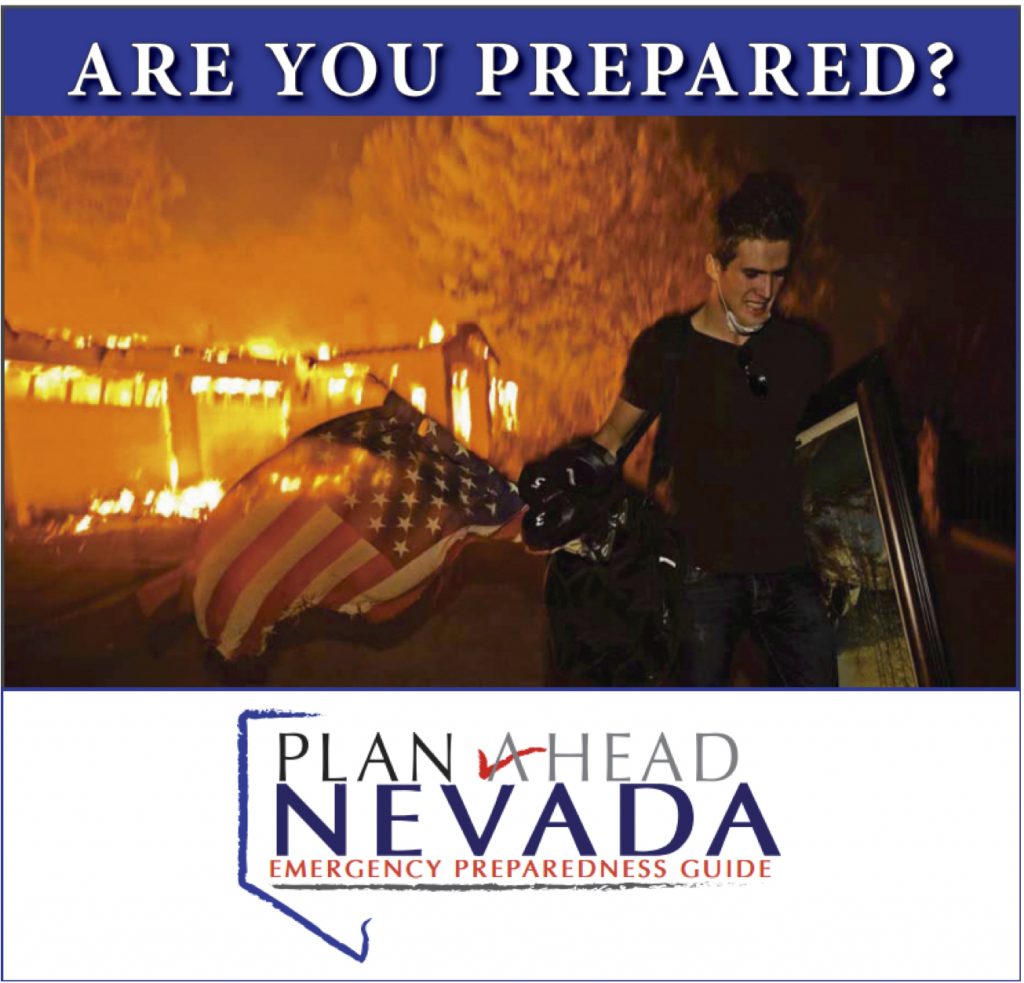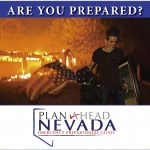September is National Preparedness Month and State Agencies are Encouraging the Public to Be Informed/ Part 1

The Nevada Department of Public Safety’s Division of Emergency Management (DEM), Nevada National Guard (NVNG), the Division of Public and Behavioral Health’s (DPBH) Public Health Preparedness Program (PHP) and the Department of Conservation and Natural Resources (DCNR) are collectively promoting National Preparedness Month (NPM) and the importance for Nevadans to plan and prepare for any emergency. Each week during NPM, one of the participating state agencies will promote one of the four easy steps to prepare. “Don’t Wait. Communicate. Make Your Emergency Plan today.”
September 5, kicks off the first week of National Preparedness Month (NPM) – Preparing Family and Friends. DCNR encourages all individuals, communities and organizations to make the commitment to learn the four building blocks of emergency preparedness. Step one is to be informed, learn what protective measures to take before, during, and after an emergency.
NPM Step 1: Be Informed: Know Your Resources
• Learn which disasters or emergencies may occur in your neighborhood and the best actions to take during each kind of emergency. Examples of potential hazards in the State of Nevada include: wildfires, flooding, earthquakes, severe storms (wind, snow) disease outbreaks, avalanches and terrorism.
• Learn what protective measures to take before, during and after an emergency.
• Develop a family communication plan.
• Make an emergency supply kit to be prepared for any type of disaster.
• Learn about receiving emergency alerts and local emergency plans for shelter and evacuation,
local emergency contacts and local advance alerts and warnings. Pay close attention to any potential instructions provided at the end of the alert. You can receive important lifesaving alerts no matter where you are physically located. Public safety officials use reliable systems to alert you and your family in the event of natural or man-made disasters. Many communities also offer emergency alert notifications through their own systems. Check with the Integrated Public Alert & Warning System Authorities website to learn what is available in your area.
• During an emergency, local emergency management will continually be updating the media. Be sure to stay tuned to the various media outlets and social media platforms.
• Include a battery-operated radio or hand crank radio in your emergency kit in case there is no power. Know where to tune your radio during emergencies.
• When traveling, learn about potential emergencies that may occur in the regions you will be visiting. Make sure you know what to do should an emergency occur.
• When recovering from a disaster, safety as well as mental and physical well-being must be considered.
• For more information on staying informed during an emergency visit: www.dem.nv.gov or http://www.ready.gov/be-informed.


